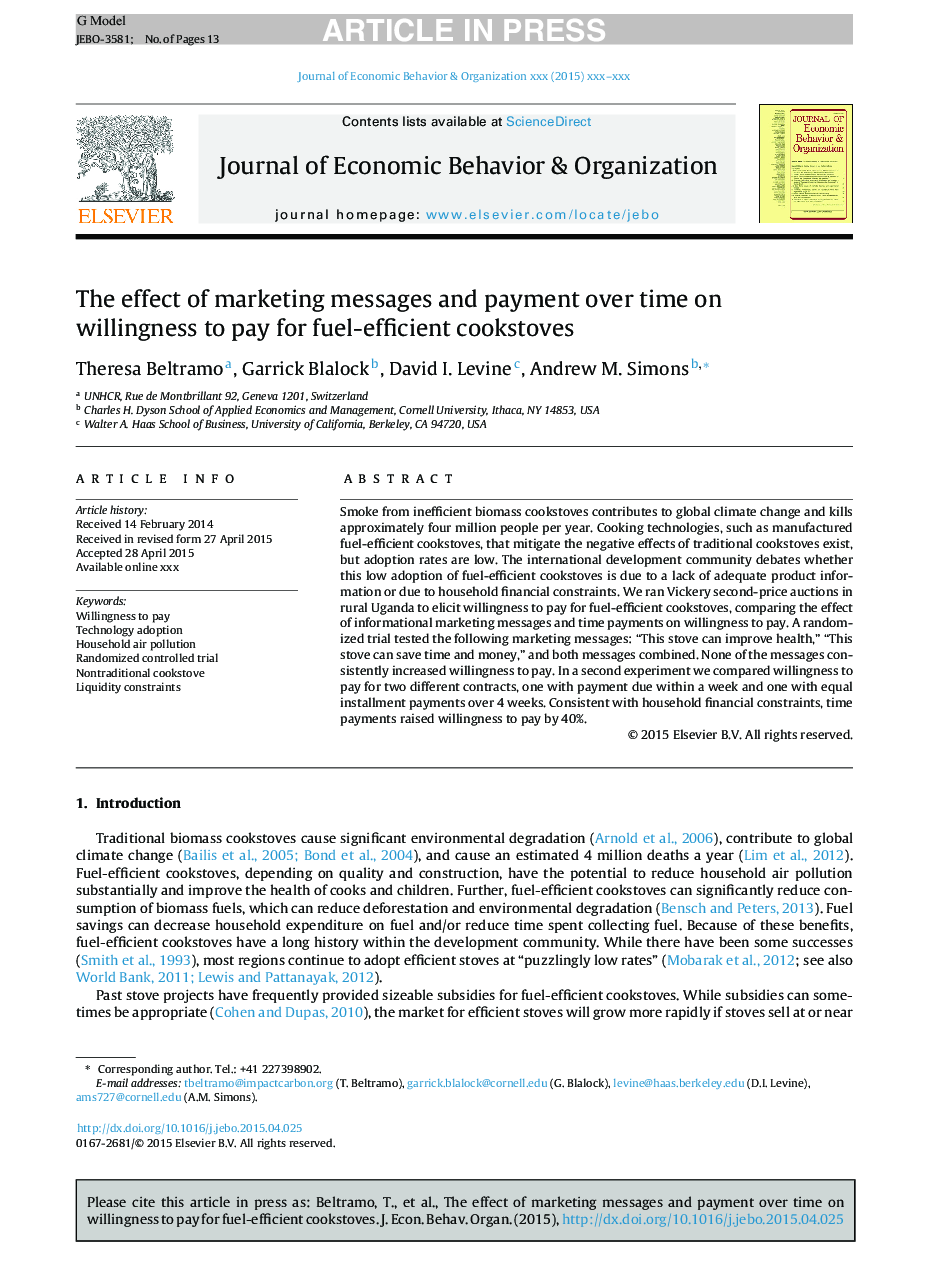| Article ID | Journal | Published Year | Pages | File Type |
|---|---|---|---|---|
| 7243007 | Journal of Economic Behavior & Organization | 2015 | 13 Pages |
Abstract
Smoke from inefficient biomass cookstoves contributes to global climate change and kills approximately four million people per year. Cooking technologies, such as manufactured fuel-efficient cookstoves, that mitigate the negative effects of traditional cookstoves exist, but adoption rates are low. The international development community debates whether this low adoption of fuel-efficient cookstoves is due to a lack of adequate product information or due to household financial constraints. We ran Vickery second-price auctions in rural Uganda to elicit willingness to pay for fuel-efficient cookstoves, comparing the effect of informational marketing messages and time payments on willingness to pay. A randomized trial tested the following marketing messages: “This stove can improve health,” “This stove can save time and money,” and both messages combined. None of the messages consistently increased willingness to pay. In a second experiment we compared willingness to pay for two different contracts, one with payment due within a week and one with equal installment payments over 4 weeks. Consistent with household financial constraints, time payments raised willingness to pay by 40%.
Keywords
Related Topics
Social Sciences and Humanities
Economics, Econometrics and Finance
Economics and Econometrics
Authors
Theresa Beltramo, Garrick Blalock, David I. Levine, Andrew M. Simons,
